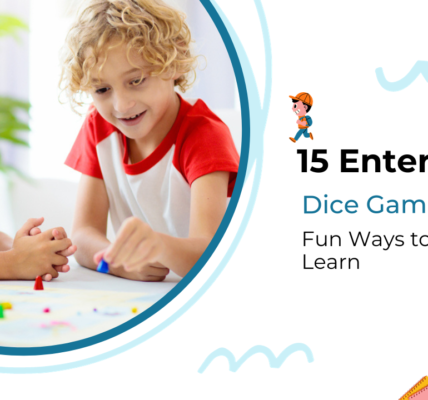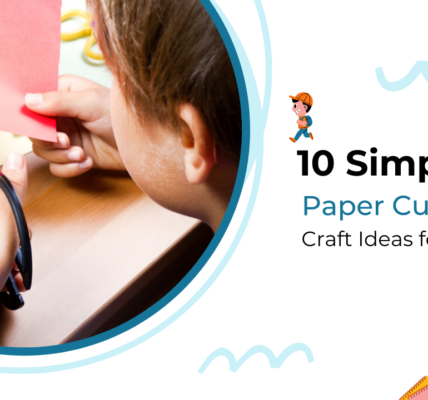35 Exciting Hobby Ideas to Foster All-Round Development in Kids
Every child possesses a world of potential waiting to be explored, nurtured, and celebrated. The path to unveiling this potential often begins with hobbies. Hobbies are not just activities; they are gateways to discovery, growth, and joy. In this comprehensive guide, we embark on a journey through 35 diverse hobby ideas crafted to foster all-round development in kids.
The Importance of Hobbies in Kids’ Development
Hobbies are more than just activities; they play a crucial role in shaping a child’s character and skills. Engaging in hobbies from an early age aids in cognitive, emotional, and physical development. Here’s a comprehensive list of 35 incredible hobby ideas for kids that foster holistic growth.
Hobby Ideas to Boost Creativity
- Drawing and Painting: Engage in artistic expression using various mediums like watercolors, acrylics, or pencils. Kids can create imaginative artworks, improving fine motor skills and fostering self-expression.
- Crafting and DIY Projects: Encourage creativity by making crafts with materials like paper, cardboard, or recycled items. From making greeting cards to building models, this hobby develops patience and innovation.
- Sculpting with Clay: Mold clay into shapes, figures, or abstract forms. It’s a tactile hobby enhancing creativity and dexterity while allowing kids to create 3D art pieces.
- Pottery: Explore the art of shaping clay on a potter’s wheel, fostering creativity and patience while creating unique pottery pieces.
- Knitting or Crocheting: Learn knitting or crocheting to create handmade items like scarves, hats, or blankets, enhancing focus and dexterity.
- Calligraphy: Practice decorative handwriting styles, improving fine motor skills and artistic expression through elegant lettering.
Physical Activities Hobby Ideas for Fitness and Fun
- Swimming: Learn swimming strokes, water safety, and enhance physical fitness in a fun aquatic environment, promoting overall health and confidence.
- Dance Classes: Explore different dance styles to improve coordination, rhythm, and body awareness while enjoying the art of movement.
- Cycling: Pedal through trails or neighborhoods, improving balance, endurance, and fostering a love for outdoor activities.
- Martial Arts: Learn self-defense techniques, discipline, and respect while staying physically active through martial arts training.
- Yoga: Engage in yoga poses and breathing exercises to improve flexibility, focus, and mental relaxation in a serene environment.
- Parkour: Explore free movement and agility, overcoming obstacles creatively in a safe and controlled environment.


Intellectual Pursuits Hobby Ideas for Mental Stimulation
- Chess: Strategize moves, enhance critical thinking, and problem-solving skills while engaging in a stimulating and competitive game.
- Reading and Storytelling: Dive into books, cultivate imagination, expand vocabulary, and improve language skills through storytelling.
- Science Experiments: Conduct hands-on experiments exploring scientific concepts, nurturing curiosity, and a love for discovery.
- Puzzle Solving: Solve puzzles like jigsaw puzzles, Sudoku, or Rubik’s cubes, improving problem-solving and critical thinking skills.
- Debating: Engage in structured debates, enhancing communication skills, critical thinking, and confidence in expressing opinions.
- Learning a New Language: Explore a new language through classes or apps, enhancing cognitive abilities and cultural understanding.
Musical Endeavors Hobby Ideas for Melodic Harmony
- Learning an Instrument: Develop musical talents by learning instruments like piano, guitar, or violin, fostering discipline and creativity.
- Singing: Explore vocal abilities, build confidence, and communication skills through singing various melodies and songs.
- Music Composition: Foster originality by composing tunes, encouraging creativity and self-expression through music.
- Beatboxing: Explore rhythmic vocal percussion, fostering creativity and musical expression through vocal sounds and beats.
- DJ Mixing: Learn DJ skills by mixing music tracks, fostering creativity and technical understanding of music blending.


Nature-based Hobbies for Environmental Awareness
- Gardening: Cultivate plants, learn about ecosystems, and take responsibility for nurturing life, fostering patience and respect for nature.
- Bird Watching: Observe birds, identify species, and learn about habitats, promoting appreciation for wildlife and environmental awareness.
- Nature Photography: Capture nature’s beauty through the lens, enhancing observation skills and creativity in photography.
Culinary Adventures Hobby Ideas for Tasty Learning
- Cooking and Baking: Explore culinary skills, learn recipes, and techniques while promoting independence and creativity in the kitchen.
- Cake Decorating: Transform cakes into art pieces by using icing, fondant, and edible decorations, fostering creativity in confectionery.
- Herb Gardening: Cultivate herbs, learn about their uses, and understand the joy of growing and utilizing fresh ingredients.
Socially Engaging Hobbies for Emotional Intelligence
- Volunteering: Engage in community service, develop empathy, and a sense of responsibility towards society’s needs.
- Joining Clubs or Scouts: Participate in clubs or scouting activities to promote teamwork, leadership, and social skills.
- Pen-pal Writing: Exchange letters with friends globally, improving written communication and cultural understanding.
Technology-Oriented Hobbies for the Future
- Coding and Robotics: Learn programming basics and build robots, fostering logical thinking and problem-solving abilities.
- Graphic Designing: Explore digital creativity by designing graphics, fostering artistic expression and computer skills.
- App Development: Understand app creation, fostering innovation and technological curiosity for the digital world.


The Benefits of Hobbies for Kids
- Enhanced Academic Performance: Engaging in hobbies can improve concentration, problem-solving, and creativity, translating to better academic performance.
- Stress Relief: Hobbies serve as stress-relievers, allowing children to unwind and relax, reducing anxiety and promoting mental well-being.
- Building Confidence: Mastering a hobby boosts self-esteem and confidence, instilling a sense of achievement and pride in their abilities.
- Time Management Skills: Balancing hobbies with academics teaches children the importance of time management and prioritization.
- Social Interaction: Participating in hobby-based clubs or classes exposes kids to new friendships and social settings, enhancing their social skills and teamwork.
Choosing the Right Hobby for Your Child
- Consider Interests: Pay attention to your child’s interests and inclinations to select a hobby they will genuinely enjoy and pursue passionately.
- Trial and Error: Allow your child to experiment with various hobbies to find the one that resonates with their personality and preferences.
- Age-Appropriate: Ensure the hobby chosen aligns with your child’s age, skill level, and developmental stage for a fulfilling experience.
- Encourage Exploration: Be supportive and encourage your child to explore diverse hobbies, even those that may seem unconventional.
How to Support Your Child’s Hobby Journey
- Provide Resources: Invest in necessary supplies or equipment required for their chosen hobby to encourage active participation.
- Offer Encouragement: Celebrate their progress and achievements, providing motivation and positive reinforcement.
- Create Space: Dedicate a designated space at home for practicing their hobby, fostering a conducive environment for exploration.
- Be Patient: Allow your child to learn at their pace, providing guidance and support without exerting unnecessary pressure.
Addressing Common Concerns About Kids’ Hobby Ideas
1. Screen Time and Technology-Based Hobbies
- While technology-oriented hobbies like coding or graphic designing are valuable, balance screen time with other activities to ensure a well-rounded development.
2. Overcommitment and Burnout
- Be mindful of overloading your child with too many hobbies. Allow sufficient downtime to prevent burnout and fatigue.
3. Financial Constraints
- Hobbies don’t have to be expensive. Many activities like drawing, reading, or gardening require minimal investment, focusing more on creativity and engagement.
Parental Involvement in Kids’ Hobbies
- Encouragement vs. Pressure: While it’s essential to encourage kids, avoid pressuring them into pursuing a hobby they dislike. Let them explore and find their passion organically.
- Quality Time: Participating in hobbies together fosters bonding and creates lasting memories. Share experiences and learn alongside your child.
- Learning from Mistakes: Embrace failures or setbacks in hobbies as valuable learning opportunities. Encourage resilience and determination in overcoming challenges.
Incorporating Hobbies into Daily Routine
- Schedule Flexibility: Strike a balance between structured hobby time and allowing spontaneity in pursuing interests.
- Variety and Exposure: Expose children to diverse hobbies to broaden their horizons and encourage openness to new experiences.
- Consistency and Commitment: Encourage regular practice and dedication to nurture skills and achieve progress in hobbies.
Overcoming Challenges in Encouraging Hobbies
- Time Management: Help kids manage time effectively by creating a schedule that accommodates both hobbies and academic responsibilities.
- Peer Influence: Address peer pressure by reinforcing the importance of personal choice in selecting hobbies.
- Lack of Resources: Explore community centers, libraries, or online platforms offering resources and guidance for various hobbies.
Fostering Lifelong Passion Through Hobbies
- Evolution of Interests: As children grow, their interests may change. Encourage adaptability and exploration of new hobbies.
- Building Skill Foundations: Even if hobbies don’t turn into careers, the skills learned contribute to personal growth and enrich their lives.
- Passing Down Traditions: Introduce hobbies that have cultural or familial significance, preserving traditions and creating meaningful connections.
FAQs – Answering Common Queries About Kids’ Hobby Ideas
- What age is ideal to introduce hobbies to kids?
Introduce hobbies based on a child’s interest and readiness, usually around 3-5 years old.
- How many hobbies should a child have?
It’s advisable to start with 1-3 hobbies to allow deep exploration and prevent overwhelm.
- Are there gender-specific hobbies for kids?
No, hobbies should be chosen based on individual preferences rather than gender stereotypes.
- Can hobbies affect a child’s academic performance?
Engaging in hobbies positively impacts academic performance by fostering creativity and discipline.
- Should parents force their kids into hobbies they prefer?
It’s crucial to encourage but not force hobbies; let kids explore and choose what interests them.
- How to balance academics and hobbies for kids?
Create a schedule that allows adequate time for both studies and hobby pursuits.
- Can hobbies help in personality development?
Yes, hobbies aid in personality development by boosting confidence, resilience, and social skills.
- Are expensive hobbies better than affordable ones?
The value of a hobby lies in the engagement and interest, not its cost.
- Can hobbies turn into future careers for kids?
Some hobbies can evolve into lifelong passions and even future careers with dedication and skill development.
- Where can parents find resources for kids’ hobbies?
Online platforms, local clubs, libraries, and community centers offer resources and guidance for kids’ hobbies.
Conclusion
Encouraging children to engage in hobbies is pivotal for their holistic development. Each hobby offers unique benefits, contributing to physical, mental, emotional, and social growth. By nurturing their interests and passions, parents can witness their children flourish and develop valuable skills that extend far beyond the hobby itself.
Explore the diverse hobby ideas mentioned earlier and embark on a journey of discovery and growth with your child. Embrace their interests, celebrate their progress, and watch them thrive through the joys of hobbies.
Remember, the ultimate goal of hobbies is not just skill mastery but the overall joy and satisfaction they bring to a child’s life.
For more parenting tips and insights, visit Parentology and delve deeper into the world of nurturing your child’s development through engaging hobbies.
Infographics



